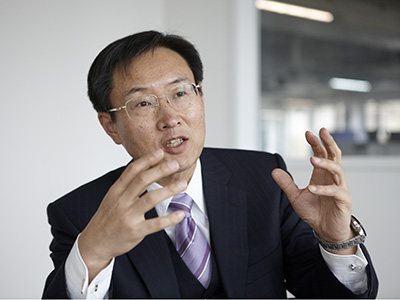Epson President: “Home 3D printing with plastic does not have a great future. We will only make commercial 3D printers. "
Epson President Minoru Usui last week gave an interview to Fairfax Media, in which he described how the company sees the future and what new products it will focus on in the near future.
Minoru Usui said the company is already developing 3D printers and wearable electronic devices similar to Google Glass and Samsung Galaxy Gear, especially focusing on the health aspect and tracking various indicators of a living organism in real time. Intelligent smart watches are likely to be presented in January at the Consumer Electronic Show in Las Vegas, and an analogue of Google glasses will appear in the next few years.
Epson 3D printers will focus on commercial and large-scale use, not home printing of plastic models by enthusiasts and individual designers.
“Home-level three-dimensional printing is a very limited niche that will not have a tangible scale for the market, in part because of the restrictions on the types of materials [mainly ABS and PLA plastic] used to create the objects.”, Minoru noted Usui. People actively buying the popular MakerBot are too inspired by Barack Obama's February speech, in which he promised great prospects for 3D printing, Mr. Usui added.

Epson CEO also boasted that between 2010 and 2012, the company registered 17,890 patents and in 2013 was included by Thomson Reuters in the list of 100 most innovative firms. A huge number of technological patents allows the company to remain one of the market leaders in home and commercial inkjet printing. For example, in the 3rd quarter of 2013, Epson became the third in the market for large format printers.
Minoru Usui said the company is already developing 3D printers and wearable electronic devices similar to Google Glass and Samsung Galaxy Gear, especially focusing on the health aspect and tracking various indicators of a living organism in real time. Intelligent smart watches are likely to be presented in January at the Consumer Electronic Show in Las Vegas, and an analogue of Google glasses will appear in the next few years.
Epson 3D printers will focus on commercial and large-scale use, not home printing of plastic models by enthusiasts and individual designers.
“Home-level three-dimensional printing is a very limited niche that will not have a tangible scale for the market, in part because of the restrictions on the types of materials [mainly ABS and PLA plastic] used to create the objects.”, Minoru noted Usui. People actively buying the popular MakerBot are too inspired by Barack Obama's February speech, in which he promised great prospects for 3D printing, Mr. Usui added.

Epson CEO also boasted that between 2010 and 2012, the company registered 17,890 patents and in 2013 was included by Thomson Reuters in the list of 100 most innovative firms. A huge number of technological patents allows the company to remain one of the market leaders in home and commercial inkjet printing. For example, in the 3rd quarter of 2013, Epson became the third in the market for large format printers.
